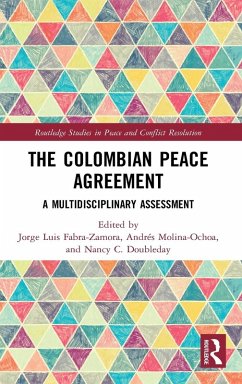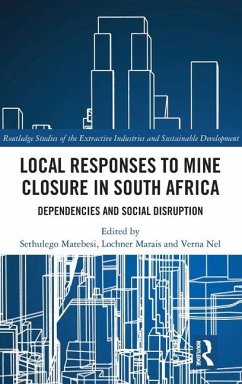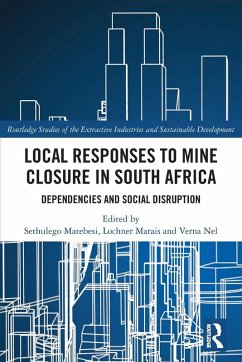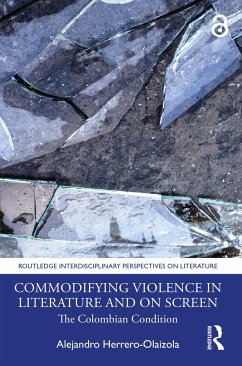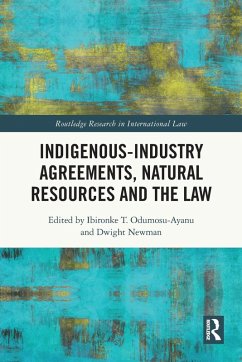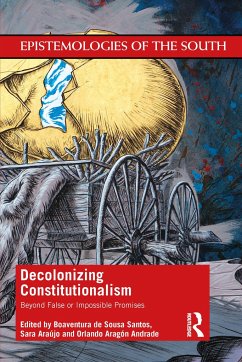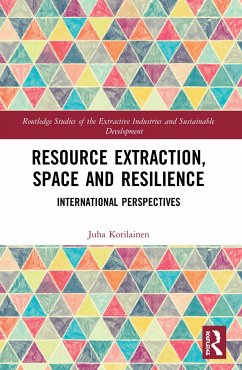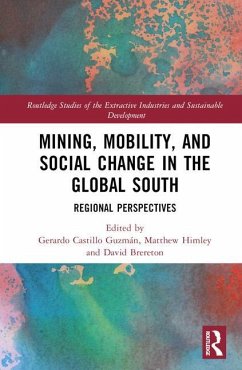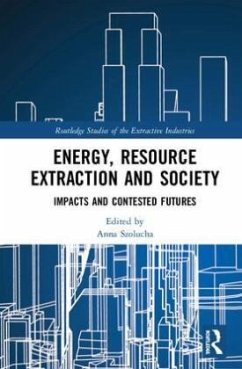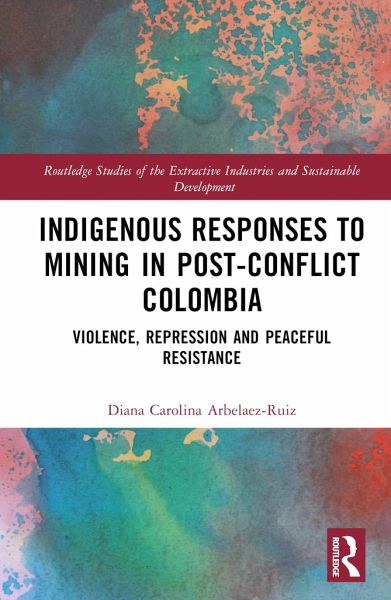
Indigenous Responses to Mining in Post-Conflict Colombia
Violence, Repression and Peaceful Resistance
Versandkostenfrei!
Versandfertig in 6-10 Tagen
144,99 €
inkl. MwSt.
Weitere Ausgaben:

PAYBACK Punkte
72 °P sammeln!
This book examines Indigenous responses to mining and their connection to peacebuilding, focusing on the experience of the Nasa Indigenous people of North Cauca during the most recent Colombian post-agreement transition.Amid an armed conflict that has disproportionally affected and targeted the Nasa, as well as ongoing processes of dispossession and oppression, the Nasa have built a tradition of organised, peaceful resistance. This book examines the nature of their responses to mining and how this is linked to peacebuilding, with a focus on how resistance is shaped and enacted to respond to th...
This book examines Indigenous responses to mining and their connection to peacebuilding, focusing on the experience of the Nasa Indigenous people of North Cauca during the most recent Colombian post-agreement transition.
Amid an armed conflict that has disproportionally affected and targeted the Nasa, as well as ongoing processes of dispossession and oppression, the Nasa have built a tradition of organised, peaceful resistance. This book examines the nature of their responses to mining and how this is linked to peacebuilding, with a focus on how resistance is shaped and enacted to respond to the relationship mineral extraction has with violence and peace. The work is exploratory, ethnographic and interdisciplinary in nature, sitting in the intersection between the anthropology of mining, development studies and peace and conflict studies. The author presents and analyses narratives, participant responses, and her own experiences to illustrate the context and interconnected processes shaping Nasa responses to mining during this transition period. The book will bring international readers closer to these intricate dynamics, where access is otherwise limited because of security, cultural, linguistic and other barriers. The book provides a novel perspective on post-conflict mining governance by focusing on the Nasa's active role in responding to mining in a post-agreement, transitional context. It highlights, and encourages engagement with, the often-overlooked role of morality in debates about nature and development.
This book will be of great interest to students, scholars and practitioners of the extractive industries, natural resource management, conflict management and peacebuilding, Indigenous Peoples and Latin American studies.
Amid an armed conflict that has disproportionally affected and targeted the Nasa, as well as ongoing processes of dispossession and oppression, the Nasa have built a tradition of organised, peaceful resistance. This book examines the nature of their responses to mining and how this is linked to peacebuilding, with a focus on how resistance is shaped and enacted to respond to the relationship mineral extraction has with violence and peace. The work is exploratory, ethnographic and interdisciplinary in nature, sitting in the intersection between the anthropology of mining, development studies and peace and conflict studies. The author presents and analyses narratives, participant responses, and her own experiences to illustrate the context and interconnected processes shaping Nasa responses to mining during this transition period. The book will bring international readers closer to these intricate dynamics, where access is otherwise limited because of security, cultural, linguistic and other barriers. The book provides a novel perspective on post-conflict mining governance by focusing on the Nasa's active role in responding to mining in a post-agreement, transitional context. It highlights, and encourages engagement with, the often-overlooked role of morality in debates about nature and development.
This book will be of great interest to students, scholars and practitioners of the extractive industries, natural resource management, conflict management and peacebuilding, Indigenous Peoples and Latin American studies.




